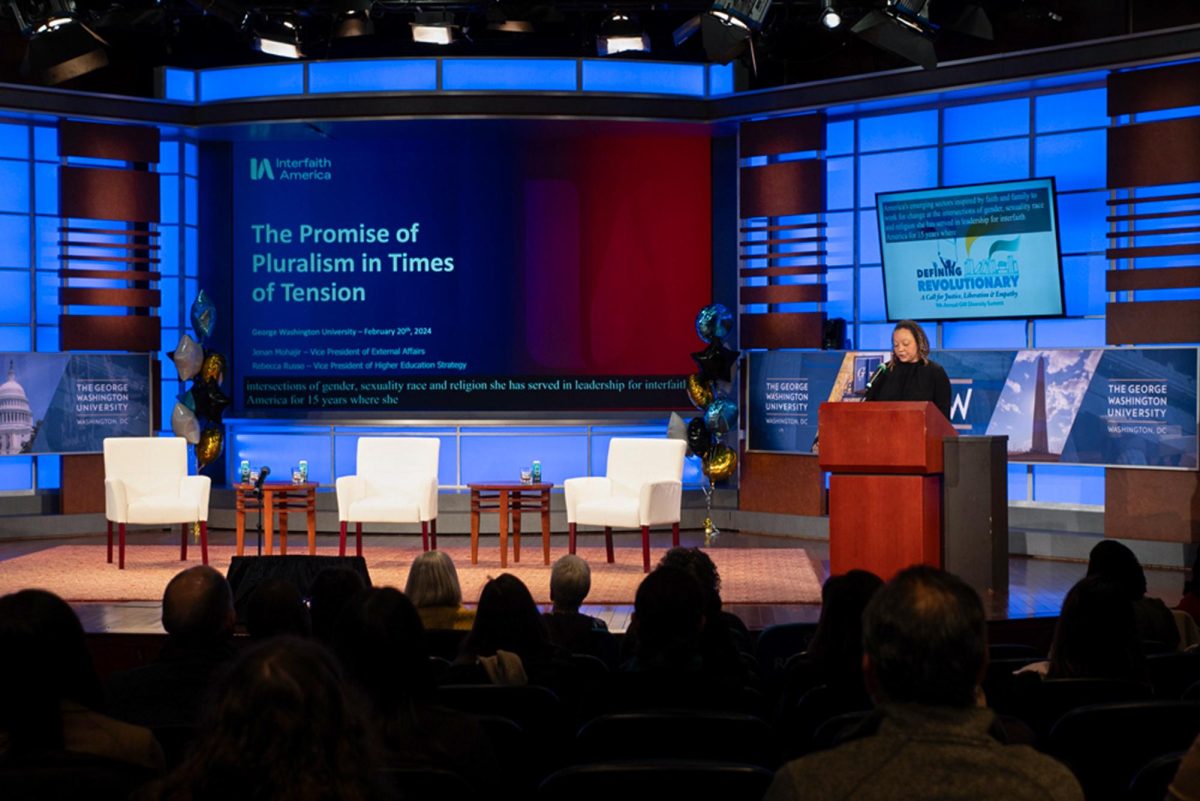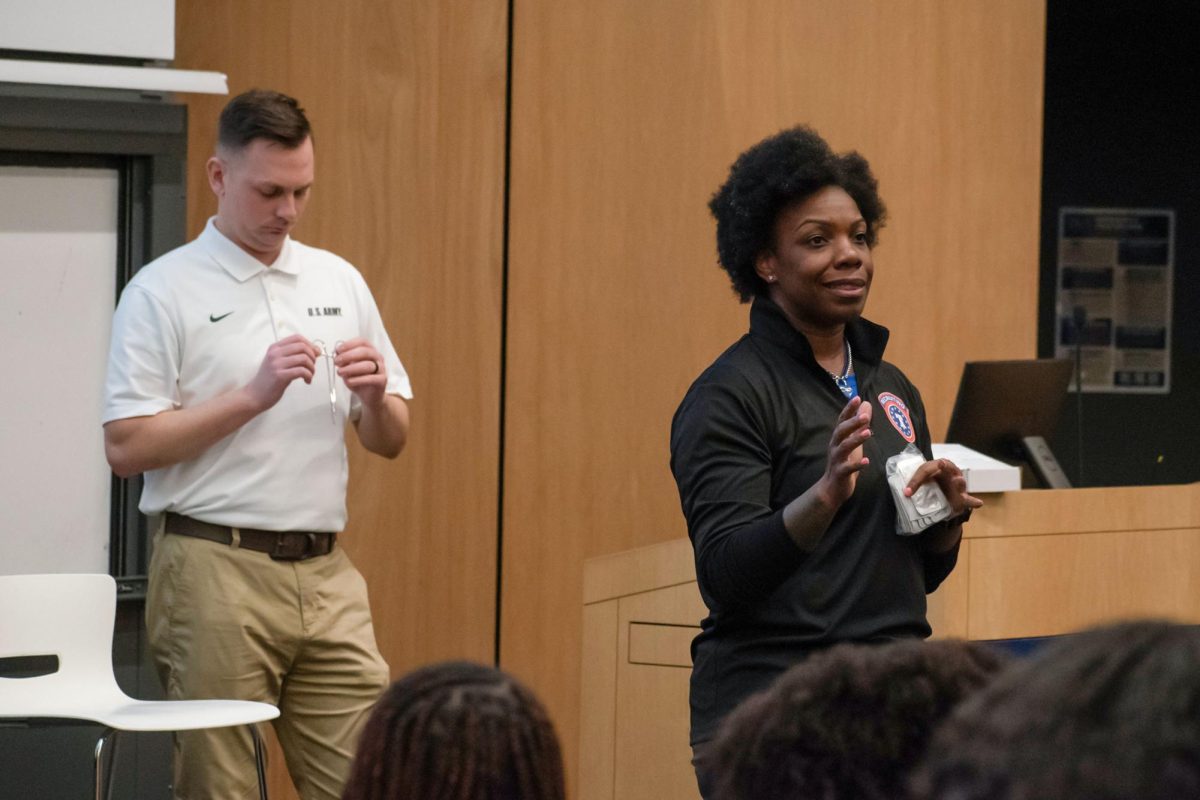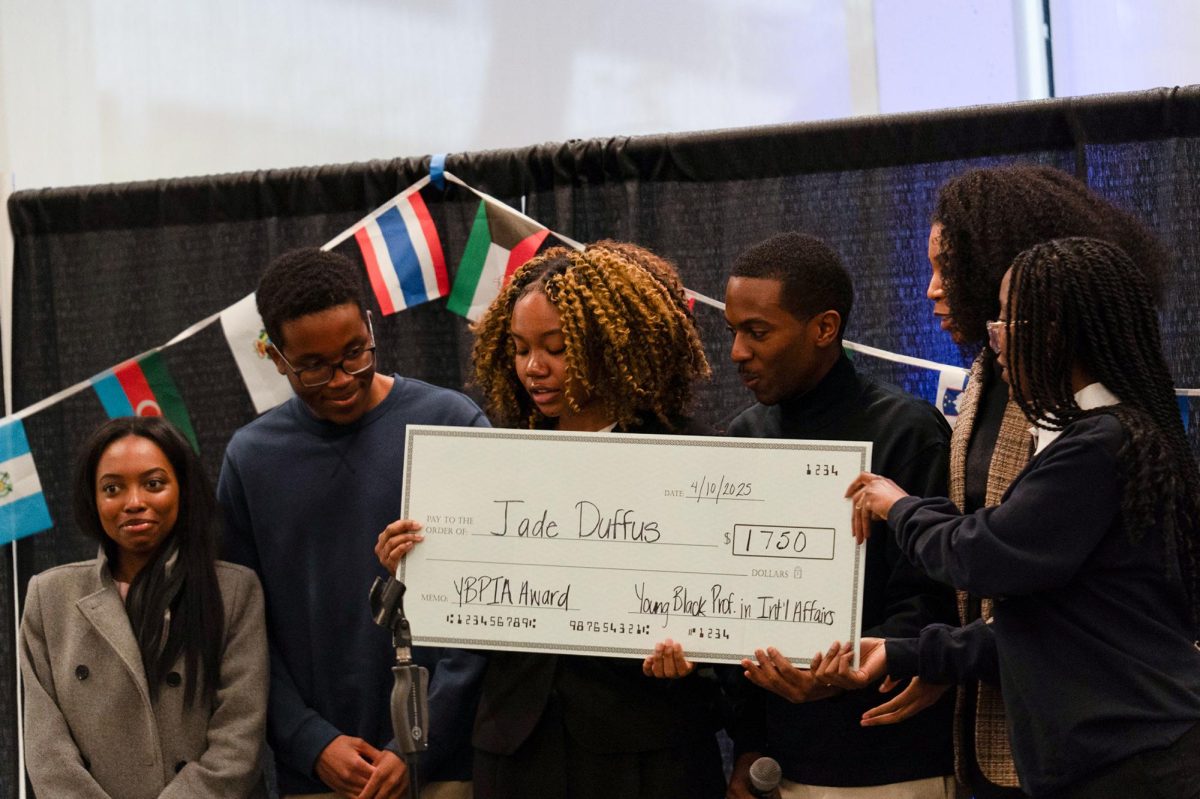Officials will hold the 10th-annual Diversity Summit next fall after hosting the event in the spring the past three years.
With the exception of this year, GW has held a diversity summit every academic year since 2015, and University spokesperson Shannon McClendon said officials slated the next summit for fall 2025. But past summit participants and a higher education expert said officials not holding the event this academic year could signal that the University is backing down from celebrating diversity-related efforts.
McClendon said that over the course of the past 10 years, officials “historically” hosted the summit in the fall semester and that the University will host the 10th summit in fall 2025. Officials hosted the summit in the spring in 2017, 2023 and 2024 and in the fall semester from 2018 to 2021.
Diversity Summits are opportunities for students, faculty and staff to come together to learn about current events and issues surrounding diversity, equity and inclusion, according to the Diversity Summit’s learning goals.
“The university will host the 10th Anniversary of the Diversity Summit in fall 2025, with details forthcoming,” McClendon said in an email.
Officials asked the GW community for proposals of presentations and workshops for the ninth-annual summit on Nov. 15, 2023, about three months ahead of the summit that occurred from Feb. 20 to Feb. 22, 2024, themed “Defining Revolutionary: A Call for Justice, Liberation, and Empathy.”
The community has not received a call for proposals from officials on the 10th-annual summit, as of April.
“We call on the engagement of our community at this moment, perhaps more than ever, to consider empathy, liberation, and justice,” the email for the ninth-annual summit states.
The Office for Diversity, Equity and Community Engagement hosts the summit and has not yet posted anything on its social media or websites about the summit and its scheduling. Past summit participants said the office has not communicated the annual event’s programming or planning yet.
In the past two years, the ODECE began promoting the summit about four months in advance of the spring programming, typically in October or November, according to the office’s Instagram posts. In 2021, the office announced its seventh-annual summit about two weeks ahead of the fall’s programming, according to their Instagram posts.
The University planned to host the ninth-annual summit in two parts during the fall and spring semester, but officials opted to consolidate the programming to the spring, citing the “campus climate” after Students for Justice in Palestine members projected messages onto the side of Gelman Library criticizing Israel, GW and University President Ellen Granberg.
McClendon declined to comment on why ODECE is not hosting the summit this academic year. She also declined to say whether the absence of an ODECE vice provost hindered the office’s ability to host the summit this academic year.
Caroline Laguerre-Brown left her post as vice provost of ODECE on July 1, 2024, after eight years in the role, and officials have yet to fill the role. Associate Vice Provost for Diversity, Equity and Community Engagement Jordan Shelby West said in November that she has expanded the programming of diversity summits to be dayslong, centering around themes of social justice throughout her tenure.
Miki Nishida Goerdt, an adjunct faculty member in the art therapy graduate program, presented an exhibit with her students at last year’s Diversity Summit about navigating different cultural aspects of their environment and themselves as international students.
She said that when she hadn’t heard about the summit’s programming earlier this semester, she emailed West for an update on Jan. 25. She said she got a response from West the same day, saying as soon as there were updates on the summit, they would be shared with the community.
“It’s actually more important this year, right now, to do this than ever. I think we have to understand the cost of nonaction. We think that if we don’t say something, we are safer,” Goerdt said. “It’s actually the opposite when we don’t say what we need to say, when we don’t make space for something that’s important for us, the cost is higher.”
Universities are facing federal funding threats amid political pressure as the Department of Education gave higher education institutions two weeks to dismantle diversity initiatives in their admissions, hiring, activities and other practices or risk losing federal funding, according to a department press release late February.
GW Law took down its DEI website sometime between December 2024 and March 3, 2025, according to web archives. The shutdown comes after President Donald Trump issued an executive order in January that called on the Department of Education to evaluate universities with DEI advancement policies and endowments over $1 billion, which includes GW.
Sandhya Avula, a fourth-year medical student and a speaker at the past two Diversity Summits, held a presentation at last year’s summit about the history of women’s health and sexism in medicine.
Avula said she was “disappointed” that she couldn’t present again this year before graduating in May among other students who were interested in participating in the summit. She said she would have liked to present her research regarding female sexual health and the advances in medicine over the past few years.
“I think it is definitely a valuable thing to have as part of a school that is championing DEI as part of what they are,” she said.
Julie Park, a professor of education at the University of Maryland, College Park, said not hosting an event like GW’s annual diversity summit this year could signal that a university is backing down from supporting diversity-related efforts.
“It sounds like it’s a time-honored tradition, especially for a 10th year. That’s pretty notable,” Park said. “And so I imagine that’s probably somewhat discouraging to the people who worked hard and see this conference as something beneficial to the GW community.”
Park said universities can celebrate and recognize diversity inside and outside the classroom through different initiatives, courses, support offices and educational conferences.
“It seems like GW is a school that very intentionally, I think, attracts students from not just around the country but the world and really prides itself on that,” Park said. “So it seems like a conference like this would be something that could help advance the educational mission and values of the institution.”








